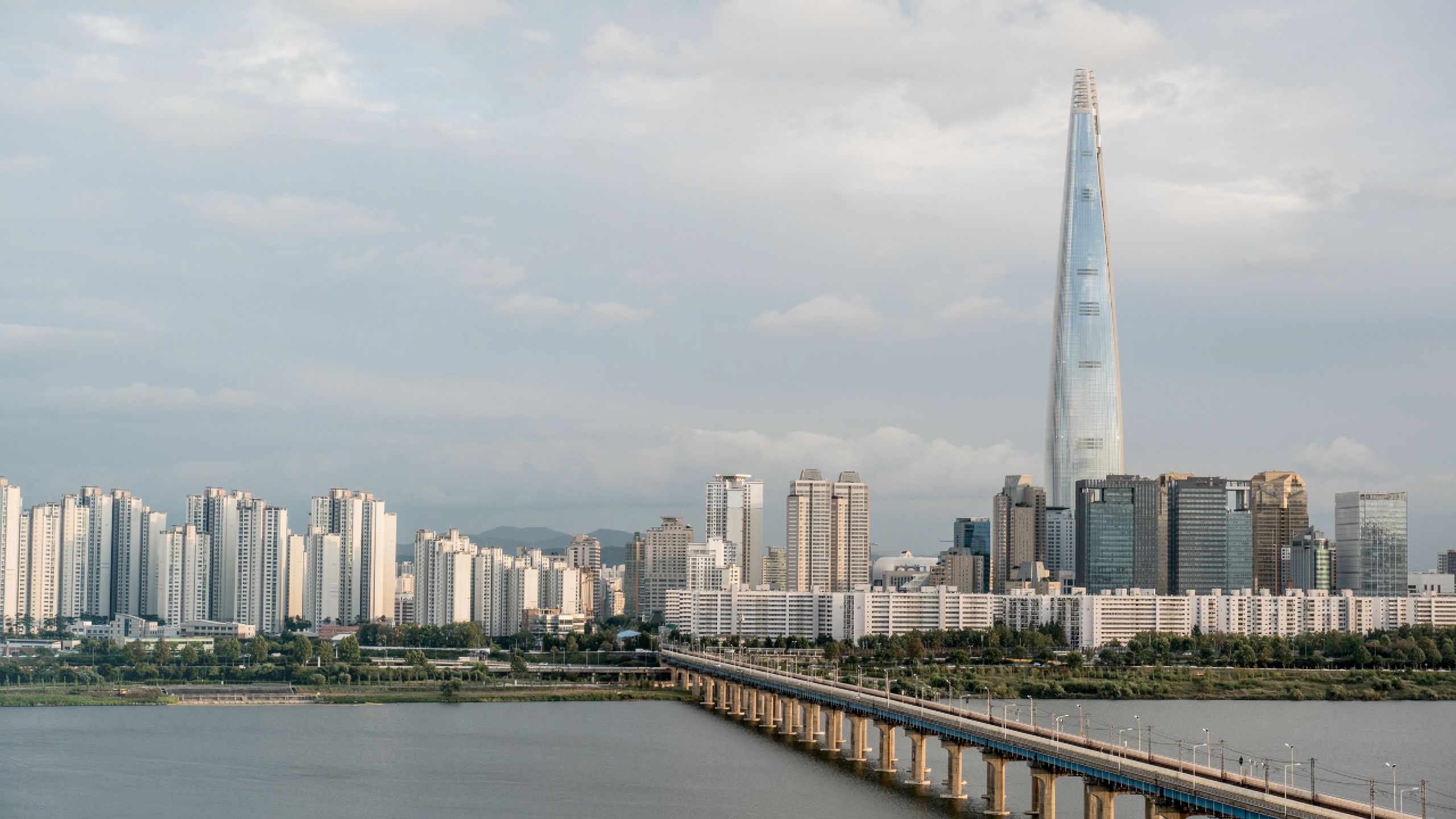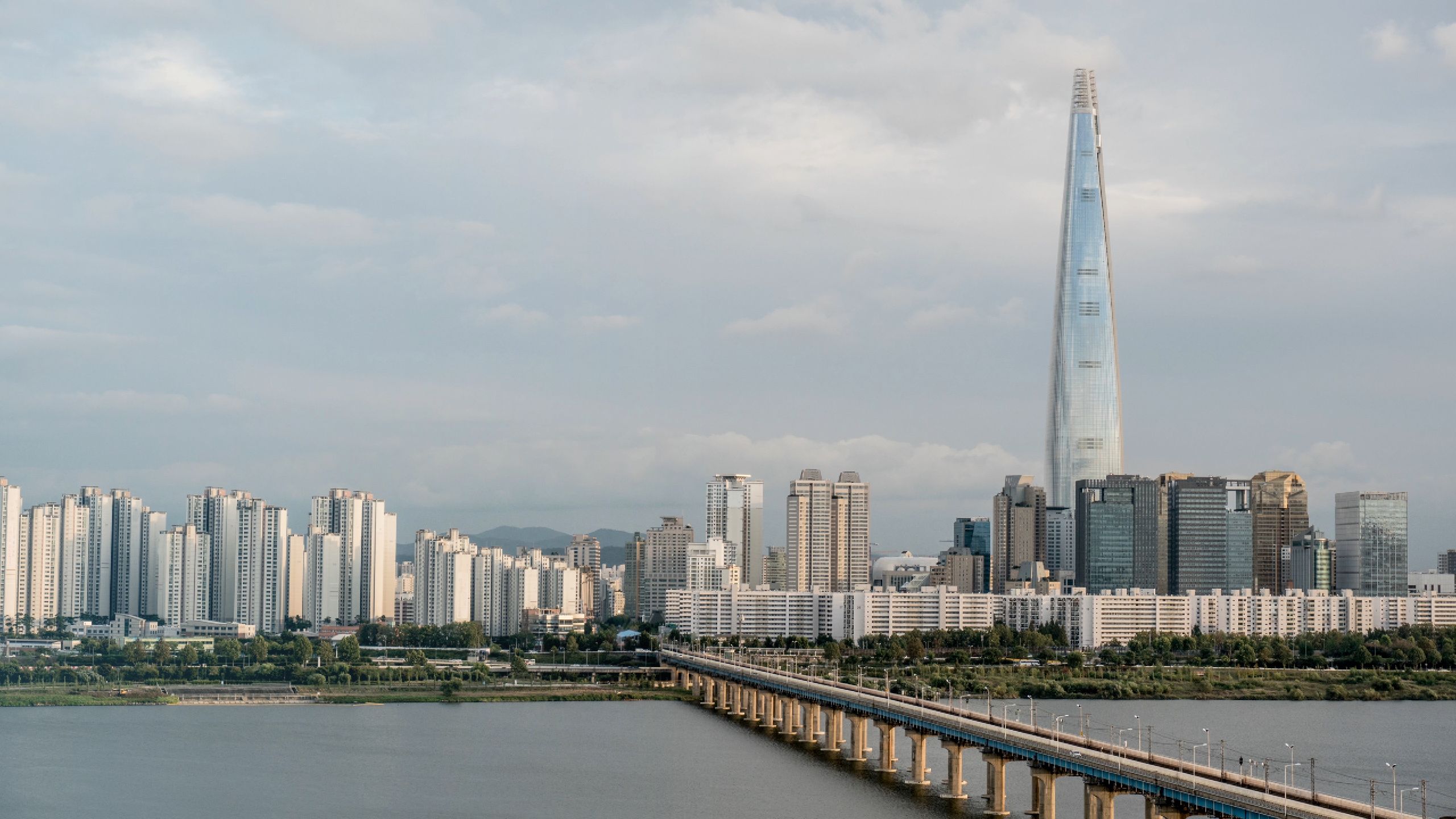south Korea
Contributing law firm: Shin & Kim LLC
Contact: Soo Young Song, Partner
Han Hee Yu, Foreign Attorney

ESG in APAC - South Korea by Shin & Kim LLC
Please click on the podcast above for a snapshot of the three key themes of ESG reporting, transition planning and greenwashing risks in respect of South Korea. Scroll down for further information on each key theme.
A. ESG Reporting
1. Are there legal or regulatory requirements for companies to make ESG disclosures in your jurisdiction?
There is a voluntary disclosure regulation on the publication of sustainability reports by listed companies. Under Article 8, Paragraph 7(e) of the Enforcement Rules of KOSPI Market Disclosure Rules of the Korea Exchange (KRX), sustainability reports are included as voluntary disclosure items. Accordingly, listed companies are currently publishing sustainability reports voluntarily. In 2021, KRX released the “ESG Disclosure Guidelines” to encourage companies to voluntarily disclose ESG information.
Korea Composite Stock Price Index (KOSPI) constituents are required to issue corporate governance reports covering 10 core principles of corporate governance.
2. What are the key legislative and regulatory sources for ESG disclosure requirements and to whom do they apply?
As major economies enhance their ESG disclosure requirements, the South Korean government is also developing disclosure requirements to assist domestic companies in complying with the escalating global ESG standards.
Although the announcement of details of the ESG disclosure system and the timeline for its introduction have been delayed, the Korea Sustainability Standards Board (KSSB) released draft ESG disclosure standards (KSSB Disclosure Standards) in April 2024. The final KSSB Disclosure Standards will be released by the end of the year and are expected to be implemented after 2026.
3. Are the requirements mandatory or do they apply on a comply-or-explain basis?
The corporate governance report mentioned above adopts a comply-or-explain approach. Other than this, there are currently no ESG-related disclosure requirements that apply on a mandatory or comply-or-explain basis.
4. Which aspects of ESG do the requirements focus upon?
The “ESG Disclosure Guidelines” released by KRX require disclosure of environmental, social and governance aspects.
The draft KSSB Disclosure Standards consist of three parts:
(a) No. 1 (General Requirements for Sustainability-related Financial Information Disclosures);
(b) No. 2 (Climate-related Disclosures); and
(c) No. 101 (Additional Disclosures for Policy Purposes).
The first two standards are mandatory for companies, while the third is optional. Under standard No. 2, companies are required to prioritize and disclose climate-related information among ESG factors.
Companies may select and disclose information about sustainability-related risks and opportunities other than climate-related information.
5. Are the disclosure requirements based on international standards? If so, which one(s)?
The “ESG Disclosure Guidelines” published by KRX summarize and provide companies with key ESG factors based on GRI.
The draft KSSB Disclosure Standards are based on IFRS S1 and S2 and have been modified to reflect the circumstances of domestic companies. The KSSB has stated that it established these disclosure standards to provide useful information to investors, considering international harmonization and acceptability to companies.
In addition, many companies voluntarily adopt a variety of international reporting standards, such as GRI, SASB, TCFD, and others.
6. How do the disclosure requirements approach materiality (e.g. single or double materiality)?
The draft KSSB Disclosure Standards are based on the ISSB Standards and therefore adopt a single materiality approach, requiring disclosure of information for investors.
The definition of “material information” in the KSSB Disclosure Standards is consistent with the definition in K-IFRS, the accounting standards aligned with IFRS by the Korea Accounting Standards Board. Accordingly, the KSSB Disclosure Standards state that information is material if omitting, misstating or obscuring that information could reasonably be expected to influence decisions that primary users of reports make on the basis of those reports.
7. Are there requirements for the disclosure of GHG emissions? If so, please specify the scope (e.g. Scope 1, Scope 2 and/or Scope 3), to whom they apply and whether there are requirements on the measurement methodology.
Given that sustainability reporting is currently voluntary, disclosure of GHG emissions is not mandatory.
Additionally, in accordance with Article 16, Paragraph 8 of the Development of and Support for Environmental Technology Act, all central administrative agencies, local governments, public institutions, national and public universities, local public corporations, regional public corporations, local medical centers, management companies under Article 27, Paragraph 1 of the Framework Act on Low Carbon, Green Growth, listed companies with total assets of KRW 2 trillion or more on a consolidated basis, and green companies (as designated by the Minister of Environment for their efforts in reducing pollutants, saving resources and energy, and improving environmental performance) are required to register and submit environmental information through the Environmental Information Disclosure System. The system categorizes disclosures into mandatory and voluntary topics, and disclosure of GHG emissions (Scope 1, 2, and 3) is voluntary. However, according to an announcement in October 2023, Scope 1 and 2 will become mandatory disclosures in the future, whilst Scope 3 will be phased in gradually. See expected enhancements to the system mentioned in section A.12 below.
8. Are there requirements to obtain independent assurance of any ESG disclosures? If so, what is the scope of such requirements?
There are no national laws or regulations that directly require third-party verification or assurance of the content of ESG disclosures; however, most companies choose to pay for third-party assurance at their own expense.
9. For companies not subject to mandatory or comply-or-explain ESG reporting, are voluntary ESG disclosures customary?
Yes, many companies voluntarily disclose their ESG information using various global initiatives and guidelines (GRI, SASB, TCFD, etc.), and the number of companies publishing sustainability reports has increased significantly. According to the KRX ESG portal, 131 companies had published sustainability reports in 2022, and this number increased to 161 in 2023.
10. Has your jurisdiction issued or adopted a taxonomy on sustainable activities? Is it mandatory and what is its scope of application?
In April 2021, the Ministry of Environment established the Korean Green Taxonomy (K-taxonomy) under the Environmental Technology and Environmental Industry Support Act. In December 2021, the Ministry released the “The Korean Green Taxonomy (K-Taxonomy) Guideline”, which outlines principles and criteria for categorizing green economic activities within the K-taxonomy framework. Whilst this guideline is not legally binding, it sets out the standards for identifying green economic activities.
The guidelines were revised in December 2022, adding nuclear power and climate change adaptation-related economic activities to the list of green economic activities, and a detailed K-Taxonomy explanation document was released.
11. Are there plans to adopt or incorporate the ISSB’s IFRS S1 and/or S2 standards? If so, please indicate the extent of alignment, to what extent the standards will be mandatory, to whom they will apply and the timeline.
As mentioned above, the draft KSSB Disclosure Standards are based on IFRS S1 and S2 and are currently in draft form.
Regarding the scope and timeline, in January 2021, the Financial Services Commission announced plans to implement ESG disclosure requirements in a phased manner. Specifically, it stated that these requirements would apply to listed companies of a certain size (e.g., more than KRW 2 trillion in assets) starting in 2025, and to all listed companies on the KOSPI from 2030. However, in October 2023, mandatory ESG disclosure requirements under the KSSB Disclosure Standards were postponed to 2026 onward, and the asset size classification of applicable companies and the specific timing of the introduction will be determined later.
12. Other upcoming developments / direction of travel
(a) KSSB Disclosure Standards Exposure Draft Released (April 2024)
KSSB is currently conducting a consultation to collect opinions from various stakeholders till August 2024.
(b) Environmental Information Disclosure System Reorganization (scheduled to be released in October 2023, but has been delayed)
Key revisions include:
(i) changing the reporting entity from a site-by-site basis to a corporate entity to align with global ESG standards;
(ii) enhancing the provision of environmentally responsible investment information based on the K-taxonomy; and
(iii) mandatory disclosure of essential items such as GHG emissions (Scope 1 and 2 only; Scope 3 will be phased in), with non-core information excluded or consolidated.








B. Transition planning
1. Has your jurisdiction set decarbonisation targets and strategies?
Yes – to reduce Korea’s carbon emissions by 40% before 2030 (compared to levels in 2018).
The Korean government has also outlined four major decarbonisation strategies: “low-carbonization of the economic structure”, “creation of a low-carbon industrial ecosystem”, and “fair transition to a carbon-neutral society” and a “strategy of strengthening the foundation for a carbon-neutral system.
2. Has the government or any regulator in your jurisdiction launched compliance and/or voluntary carbon trading schemes or carbon taxes? If so, please give details. If not, are there plans to do so?
In May 2012, the Emissions Trading Act was enacted, and in January 2015, the KRX launched the emission trading market (K-ETS). Based on the Emissions Trading Act, the K-ETS is a mandatory compliance market applicable to “business entities eligible for allocation”.
The Korean government has issued its GHG emission reduction targets roadmap, and accordingly allocates mandatory GHG reductions targets and emissions allowance for trading to companies whose GHG emissions exceed a certain scale, that can be traded through the emission exchange. In short, there is a mandatory compliance market for certain companies whose average total GHG emissions produced during the preceding three years are not less than 125,000 tons of comparable CO2 equivalents (CO2-eq) or with at least one place of business that has produced 25,000 tons of comparable CO2 equivalents (CO2-eq) during the preceding three years.
K-ETS’ participants are government-designated companies and market makers designated by the government. They are Korea Development Bank, Industrial Bank of Korea, Hana Financial Investment, Korea Investment & Securities, SK Securities, KB Securities, Shinhan Securities, and NH Investment & Securities.
There are also voluntary carbon markets in Korea, including a voluntary carbon market opened by the Korea Chamber of Commerce and Industry (KCCI), which is a leading organization in the voluntary carbon market in Korea. KCCI opened a carbon emission verification and evaluation service in March 2023. Currently, KCCI is working to ensure the reliability of credits by registering with the international standard of ICAO CORSIA.
3. Are there mandatory requirements for companies to have in place and/or disclose climate-related transition plans? If so, please give details (including whether there is any standard or guidance on transition plans and/or requirement to consider the social impact of the plan). If not, are there plans for such requirements?
It is currently not mandatory to have or disclose a climate-related transition plan.
The draft KSSB Disclosure Standards contemplate disclosure of any climate-related transition plans, including information on the key assumptions and the factors on which the company's transition plan relies. The transition policy disclosure method and details have not yet been finalized.
4. Are there mandatory requirements to set, meet and/or disclose climate-related targets? If so, please give details. If not, are there plans for such requirements?
Korea currently has no mandatory requirements for companies to set, meet and/or disclose climate-related targets. However, the Korean government plans to enact the KSSB Disclosure Standards with respect to mandatory disclosure based on the ISSB Standards after 2026. As noted above, the draft version, which is based on IFRS S1 and S2, was released by the KSSB earlier this year and require the disclosure of any climate-related targets which the entity has set and is required to set under law.
5. Other upcoming developments / direction of travel
In order to achieve the 2030 carbon reduction target of 40% compared to 2018 levels, goals and implementation measures for each sector such as energy conversion and industry were established in 2021 and revised in March 2023, and the revised implementation measures are still ongoing.

C. Greenwashing risks
1. Are there any recent examples of legal proceedings, regulatory actions or investigations against or into greenwashing in your jurisdiction?
(a) In March 2024, Climate Solutions filed a complaint against eight companies (SK Corporation, SK Siltron, SKC, SK i-Technology, SK Telecom, SK hynix, POSCO, and POSCO Holdings) for violations of the Labelling and Advertising Act and the Environmental Technology Industry Act. The complaint alleges that these companies falsely advertised that by paying the Green Premium, a system that verifies the use of renewable energy by charging an additional fee on top of the electricity bill, they had reduced GHG emissions. Climate Solutions claims that the Green Premium does not actually reduce GHG emissions and that advertising it as such is misleading. The complaint was submitted to the Korea Fair Trade Commission and the Korea Environmental Industry and Technology Institute.
(b) In February 2023, the Ministry of Environment issued an administrative guidance against SK Enmove's advertisement of carbon-neutral lubricants. SK Enmove had launched engine oils and advertised them as carbon-neutral because they were made by purchasing carbon credits from Verra, a U.S. carbon credit certifier. However, the advertisements were criticized as greenwashing, as carbon credits alone cannot permanently eliminate carbon from petroleum products. In response, the Ministry of Environment issued an advance notice of corrective order in December 2022. However, given that the advertisement and product sales had already been suspended, it was ultimately merely administrative guidance, which is not enforceable and merely serves as a recommendation to be careful about the use of related terms in the future. The Korea Fair Trade Commission had decided not to prosecute.
(c) In March 2022, the Korea Fair Trade Commission decided not to prosecute SK E&S for an advertisement that claimed to “usher in the era of eco-friendly LNG” after an environmental organization filed a complaint. The KFTC ruled that the advertisement was not false or exaggerated because it was about future plans.
2. Are there any laws or regulations specifically dealing with greenwashing?
The Act on Fair Labelling and Advertising restricts unfair labels and advertisements in general, and the “Guidelines for Examination of Environmentally Related Labels and Advertisements” stipulate specific examination criteria for unfair labels and advertisements related to the environment, including greenwashing.
The “Guidelines for Labelling and Advertising of Eco-friendly Business Activities” provide examples on greenwashing.
3. What are the likely grounds on which such proceedings, actions or investigations can be instigated?
Relevant grounds include:
(a) breaches of “Guidelines for Labelling and Advertising of Eco-friendly Business Activities” – e.g. by providing false or exaggerated information about the environmental performance of a product and firm’s disclosure;
(b) breaches of the Act on Fair Labelling and Advertising and Guidelines for Examination of Environmentally Related Labels and Advertisements – e.g. by providing false or exaggerated information about the environmental performance of a product; and
(c) liability under the Financial Investment Services and Capital Markets Act– e.g. by providing materially false or misleading information in listing documents or other corporate disclosure documents.
4. Other upcoming developments / direction of travel
There are no significant developments at this time.

This material is provided for general information only. It does not constitute legal or other professional advice.
